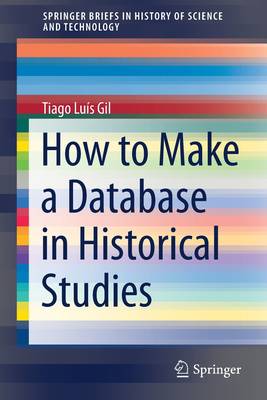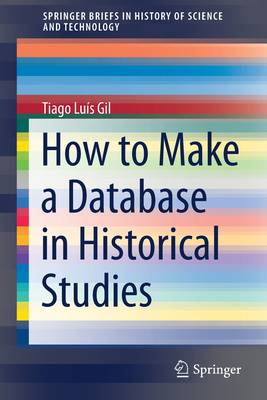
Bedankt voor het vertrouwen het afgelopen jaar! Om jou te bedanken bieden we GRATIS verzending (in België) aan op alles gedurende de hele maand januari.
- Afhalen na 1 uur in een winkel met voorraad
- Gratis thuislevering in België vanaf € 30
- Ruim aanbod met 7 miljoen producten
Bedankt voor het vertrouwen het afgelopen jaar! Om jou te bedanken bieden we GRATIS verzending (in België) aan op alles gedurende de hele maand januari.
- Afhalen na 1 uur in een winkel met voorraad
- Gratis thuislevering in België vanaf € 30
- Ruim aanbod met 7 miljoen producten
Zoeken
Omschrijving
This book is a greatly supplemented translation from Portuguese, originally published in 2015. It discusses the most appropriate ways to create databases for research on history and other humanities, including an extensive debate about the usages that historians have made of computing since the 1950s. It has four chapters: the first is dedicated to theoretical and methodical questions about the usage of databases in history; the second is about technical issues; the third presents the concept of research engineering (how to improve research in groups); the last is about the construction of databases. The author states that the use of technology in research in history and humanities should be preceded and mediated by theories and methods which deal with these disciplines and not by technical issues. The historian must know how to think "correctly" in order to use the technological tools in an autonomous way. The book provides a background, demonstrating how theory, methodology, and technique are always articulated in historical research, and will appeal to history students and researchers.
Specificaties
Betrokkenen
- Auteur(s):
- Uitgeverij:
Inhoud
- Aantal bladzijden:
- 93
- Taal:
- Engels
- Reeks:
Eigenschappen
- Productcode (EAN):
- 9783030782405
- Verschijningsdatum:
- 28/07/2021
- Uitvoering:
- Paperback
- Formaat:
- Trade paperback (VS)
- Afmetingen:
- 156 mm x 234 mm
- Gewicht:
- 163 g

Alleen bij Standaard Boekhandel
+ 149 punten op je klantenkaart van Standaard Boekhandel
Beoordelingen
We publiceren alleen reviews die voldoen aan de voorwaarden voor reviews. Bekijk onze voorwaarden voor reviews.









